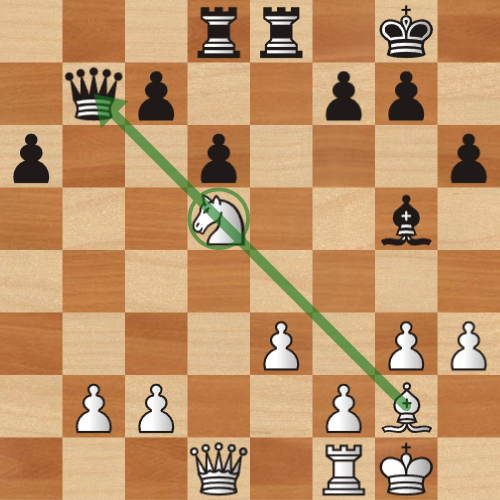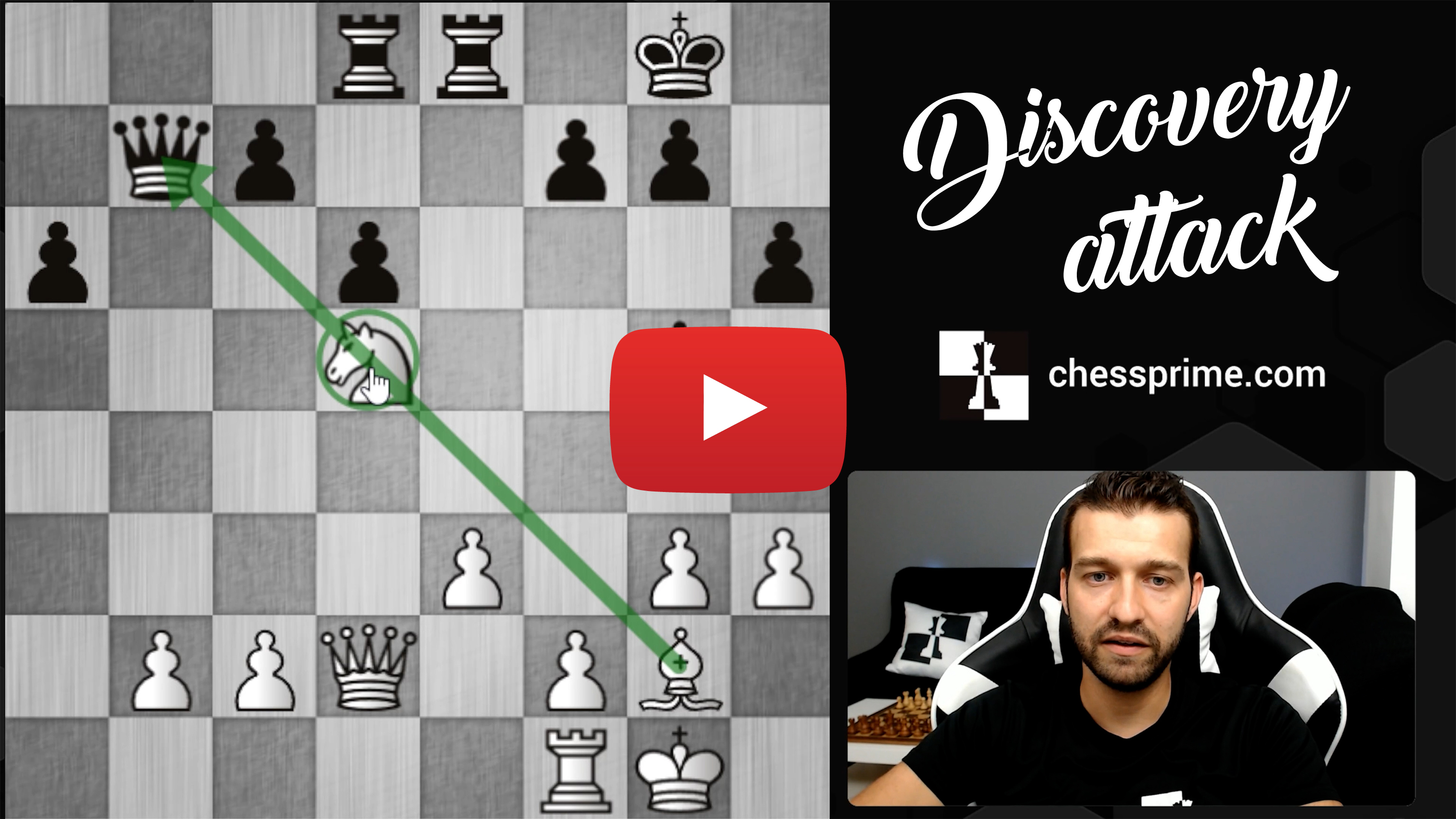What is a Discovered Attack?
A discovered attack is a tactical theme in chess that occurs when one piece moves, revealing another piece which then attacks something important — usually a higher-value enemy piece or the king. It is especially powerful when the moving piece simultaneously creates another threat (for example, a capture or check), so the opponent cannot respond to both threats at once.
Key Features
- Involves at least two of your own pieces on the same line (rank, file, or diagonal): the one that moves and the one that is uncovered.
- The uncovered piece executes the main attack once the line is cleared.
- If the movement of the front piece also creates another threat (for example, check or capture), it is called a double discovered attack or a very strong variant of a discovered attack.
- Very effective for winning material or forcing a positional advantage.
Discovered Attack Example
Scenario: White plays and executes a discovered attack.

The black queen on b7 is being attacked by the white bishop on g2, but there is a white knight in the way. Moving it will create a discovered attack on the black queen on b7.
Move: 1. Nf6+!
By moving the knight, the bishop attacks the black queen on b7 while Black has to respond to the check; afterwards, we can capture the queen.
